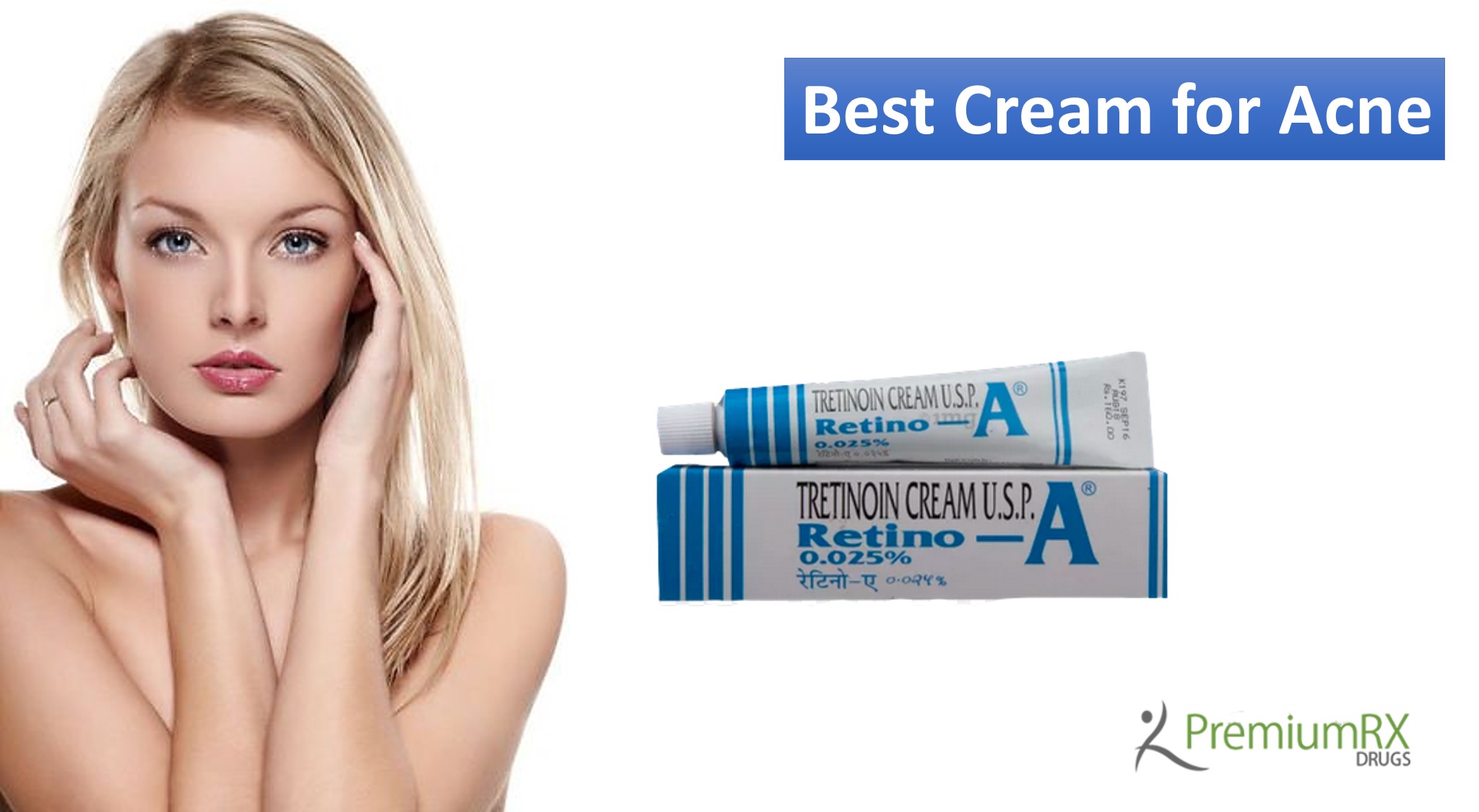When the goal is to prevent acne and correct existing damage caused by acne, all dermatologists will agree that daily use of Tretinoin is the solution. Tretinoin is a therapeutic addition for a wide variety of dermatologic conditions. The acne treatment is made up of retinoids, and the term retinoids refers to vitamin A, which is used to reduce acne, wrinkles, and several other dermatological issues. Vitamins are essential to the skin as they involve skin cell development and differentiation. It helps support the inhibition of collagen breakdown, increases collagen synthesis, increases skin elasticity, improves water barrier function, reduces inflammatory lesions, and regulates sebum production. These qualities make Tretinoin an excellent choice for treating acne and hyperpigmentation.
Working Mechanism Tretinoin
Tretinoin has been touted as a superhero for skin when used on the surface; the retinoids in the formulation promote cell turnover and collagen production. Tretinoin is conventionally used in two forms, namely creams and gels. The product should be best used under a dermatologist’s supervision.
The mode of action is very complex. Its regular application improves the deficiency of collagen that exists in the skin. Among all the topical retinoids, Tretinoin is the most potent and widely used acne treatment that has also been used for photoaging worldwide. A topical formulation of Tretinoin helps prevent further damage caused by UV exposure. Therefore, the therapeutic agent is effective against stubborn cane and slows down and prevents photoaging due to exposure to ultraviolet rays.
Tretinoin is considered a comedolytic agent and works by opening the clogged pores. The topical formulation is made to enter the pore and eradicate the underlying bacteria P.acnes, which is responsible for causing an acne breakout. The action is very beneficial in the treatment of acne. Patients treated by the dermatologists in the research study came up with significant changes in the appearance of acne.
Side Effects of Tretinoin
Some believe their skin is too sensitive for Tretinoin, some have tried it and discontinued it due to skin irritation, and others fear that Tretinoin contains retinoids and does not contain natural ingredients, so it should be avoided. The truth is that Tretinoin is a common therapeutic agent used for skincare. Although everyone’s skin is different, almost every skin can benefit. Of course, an exception for those who are pregnant, trying to conceive, or nursing. A tretinoin formulation can initially cause dry skin peeling and some redness. Users should be aware that dryness is normal with tretinoin. Dryness, skin peeling, and redness are side effects of the topical acne treatment, working to enhance collagen production, skin smoothening, and reducing pigmentation. Tretinoin therapy is highly effective in treating acne, but some people avoid using it because of the above-mentioned side effects. Such people can get rid of dryness and irritation by applying moisturizer for 5 to 10 minutes before applying tretinoin preparation.
Tretinoin cream or gel does not appear to cause birth defects as it is rapidly metabolized into the skin. The therapeutic agent can be used for acne in pregnant ladies only if the benefits are higher than the risk to the fetus. However, it should be wise to consult a dermatologist before buying a Tretinoin preparation.
Effects of Tretinoin
The efficacy of tretinoin increases with increasing concentrations in individuals using it. The agent is extremely effective as monotherapy in patients with non-inflammatory and mild to moderate inflammatory acne. A tretinoin formulation should be applied in a pea-sized amount on the affected skin area that is already clean and dry. The irritation associated with tretinoin is compounded by sun exposure; the cream or gel should be applied once daily at bedtime. You can apply a test dose to assess irritation and wash off an hour later. Start with a low concentration and then increase the dose as needed. This helps to reduce the irritation caused by the topical retinoid. In addition, skin irritation usually disappears with consistent use.
Tips for Successful Usage of Tretinoin
Almost every skin benefits from Retinoids. Check out these tips to make your acne treatment successful:
- Pick the right form for you- Effective Retinoids are available in over-the-counter and prescription forms. People with sensitive skin have experienced problems with OTC preparations, and you might want to begin the treatment under the dermatologist’s supervision. Prescription tretinoin formulation is less irritating than over-the-counter products. Since OTC products contain retinol instead of retinoids, which must convert to retinoic acid, visible improvements may be slower to emerge.
- Set up a routine- Use Tretinoin products thrice weekly, but be consistent with its application. Once the tolerability is achieved, start using it every night.
- Tretinoin in the night- Confine your usage to nighttime. Tretinoin cream degrades at night, so if you use it during the day, you are not getting your money’s worth. exposure to the sun can also give rise to erythema, and if you are already experiencing dryness, redness, or irritation, exposure to the sun can worsen the condition. Hence, use Tretinoin preparation at night only, sunscreen during the daytime when going out in the sun, and avoid sauna.
- Patiently wait for the results– No one can get clear skin overnight. The results depend on the type of the severity of your acne, the condition of your skin, and the concentration of Tretinoin, and it could take six to eight weeks before you start to improve the appearance of your acne significantly.
- Appropriate application- After finding the type of retinoid that best suits you, make it part of your skincare routine and be consistent with its use to get the best results. Use it regularly to get the most out of it.
Marie
Latest posts by Marie (see all)
- Revize Micro Gel 0.025% | Uses, Price, Side effects - April 9, 2025
- What is Evalon Cream: How to Apply, Benefit, who Can Use - April 4, 2025
- Understanding Avanair 200 mg: A Comprehensive Guide - April 4, 2025




